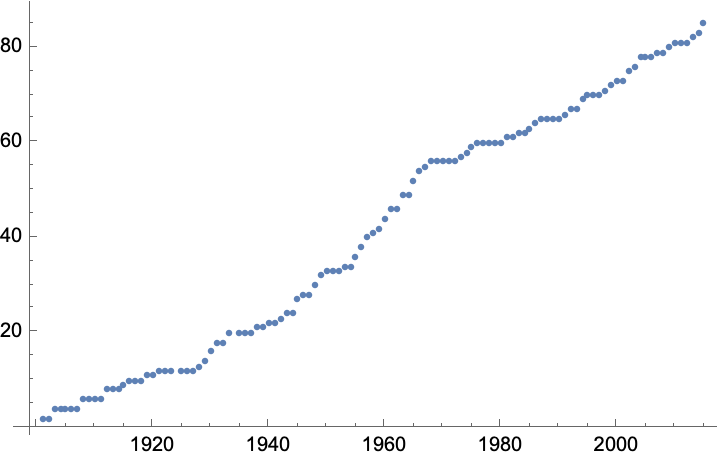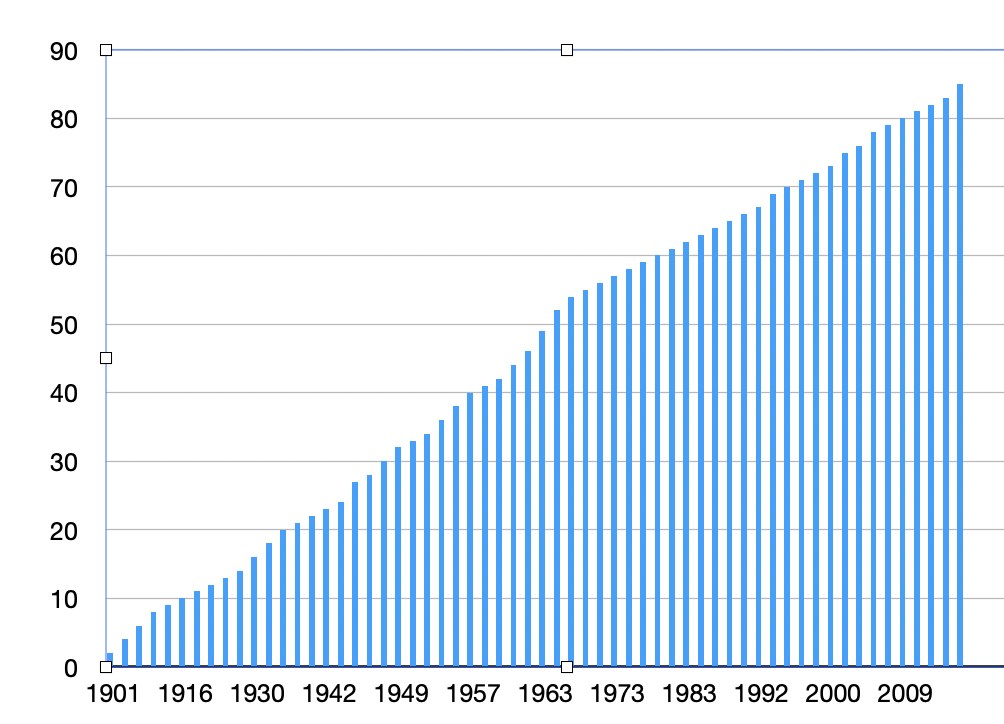Q: Is the number of "breakthroughs" in mathematics decreasing?Is the number of "breakthroughs" in mathematics decreasing?
To get some quantitative feel for the question I considered the Timeline of mathematics on Wikipedia. Not all entries are "breakthroughs", but most could be considered as such. Here is a plot of the cumulative number of entries since 1900. I do notice a kink in the slope around 1965, so based on this evidence on might conclude that, indeed, the rate of discovery has decreased somewhat. Or perhaps the 1960's was just an unusually productive decade.

Relative to the total output the discovery rate is obviously much smaller now than in the past.

